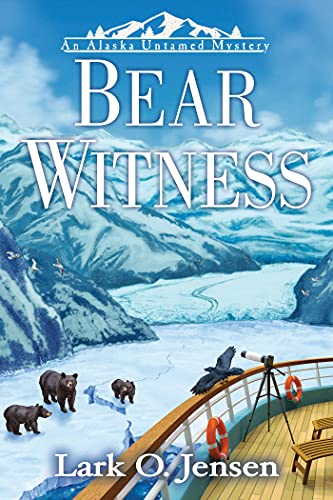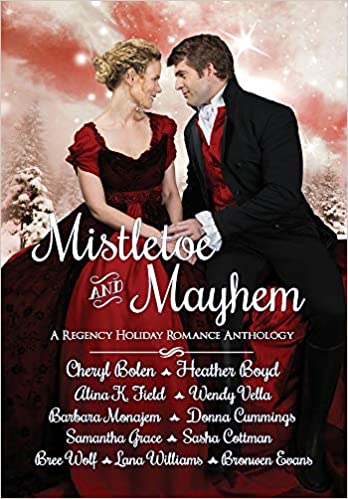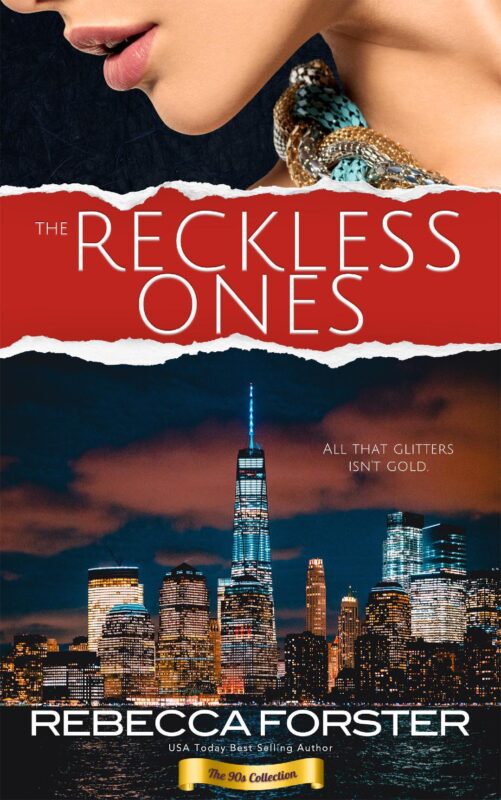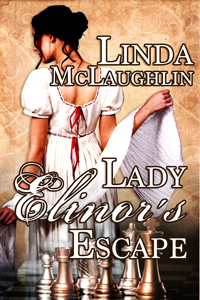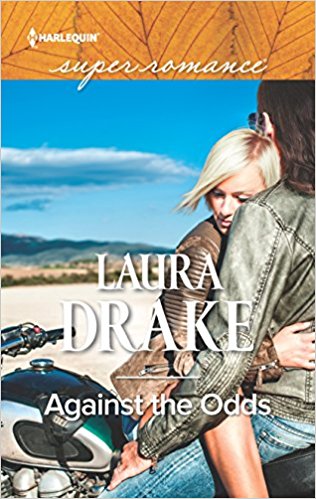Mystic Invisible Book Tour and Giveaway
June 4, 2021 by marianne h donley in category Apples & Oranges by Marianne H. Donley, Rabt Book Tours tagged as #RABTBookTours, Booktour, Fantansy, Ryder Hunte Clancy, young adult
Date Published: 3/17/21
Publisher: Winter Goose Publishing
Fifteen-year-old Monte moves to the mystically jeopardized Highlands of Scotland and discovers that life as a Celtic wizard is anything but easy. Whisperings of abnormal enchantments and vicious cat siths grip the small town he now calls home. Fear is at the helm and the instigator is unknown. An indefinite moratorium on magic is enforced. In a race against darkness, Monte and his friends must choose who to trust before time runs out, even if it means breaking some rules and facing danger head on.
About The Author
Ryder Hunte Clancy has lived most of her life in the desert but her heart belongs to the sea; her happy place, where brine and mist abound and allusive waves caress expansive stretches of compacted sand. A tried and true stay-at-home mom, she is often found scribbling notes between diaper changes or connecting plot points while everyone else sleeps. She survives off of toddler snacks like apple slices and cheese, and has just as much trouble keeping up with her fictional, teenage characters as she does her three small children. Mystic Invisible is her debut novel, the inspiration of which was gleaned from her husband’s homeland of Scotland, where fantasy, mystery, and folklore are rich and hits of adventure linger around every corner.
Excerpt
Mystic Invisible
Ryder Hunte Clancy
“Besides,” Garrick continued. “What else am I supposed to do? There’s not a lot of potential to
make hard and fast friends here, seeing as we’re the only Mystics around.”
“You could play with those madger thingies,” Monte suggested, as though he were the big
brother, not Garrick. He squinted at the line of firs across the field.
“And when would I ever need night-vision goggles?” Garrick asked. “That’s all they are.
They’re rudimentary.”
“Rudimentary?” Monte could never keep up with Garrick’s fancy words.
“Primal . . . basic . . . old,” Garrick rattled off.
His rant was interrupted by a loud whoop. The shout crossed through the field—a teenage battle
call—as a pale, springy kid scurried out from the firs.
“Finn?” Monte asked. “It’s Finn Cornelius!”
Finn sprung through the jungle of grass like a nymph, fear plastered across his face, pursued by a
posse of very large high school-aged boys.
“Hey!” Garrick tore toward the group. “Get away from him!”
Monte raced after his brother. A dark blur flashed in his peripheries, knocking him to the ground.
Dull lights, like distant stars, mottled his vision as he tumbled to a stop in the muddy grass. A
girl with scraggly black hair and bronzy skin stood above him. “Cameron?” He scrambled to his
Feet.
Cameron’s stare met his, her caramel eyes familiar and intense. The rainbow lights hung around
her neck, much dimmer than Monte remembered.
My Story and the Journey to Eye See
RYDER HUNTE CLANCY
For the dream seekers,
The downtrodden,
The courageous champions of good cause.
For the quirky and the quelled,
The unseen genius and
The undiscovered voice.
For the loud but unheard,
The soft and tender hearted.
For the quiet and devoted.
For the wallflowers,
The late bloomers,
Those ugly ducklings, now swans.
For the invisible ones.
I see you,
I hear you,
And I believe.
We are the change.
I recently had the opportunity to give my website a makeover. In doing so, it gave me the
opportunity to pen the above mission statement. This is what I live by. It’s what I march to
every day, rain or shine. It’s what I believe; from my calloused, keyboard-typing fingers, to the
very nucleus of my being. Everyone has a voice that should be heard, most especially those who
don’t believe they do. I used to be one of those people. I was more than just a wallflower. I was
invisible; so timid and “ordinary” that I was easily overlooked. But I always craved to be heard. I
tried many things to satiate that big, booming urge inside of me. However, it wasn’t until well
into adulthood that the anvil finally dropped. With a baby on my lap and a toddler at my feet, I
picked up a pen and started writing. The rest was history. I’m still quiet by nature but I have
finally found my voice, and so can you!
-Ryder
2 0 Read moreD.D. Croix: Storyteller, Tea Drinker, Magic Seeker
July 16, 2020 by Jann Ryan in category Writing tagged as Fantansy D.D. Croix writes fantasy fiction filled with secret worlds, enchanting mysteries, and magical mischief. Under another pen name, she also writes award-winning contemporary romance and historical novels that have been translated into multiple languages and runs O.C. Writers, a support network for published and aspiring authors in Orange County, CA. She lives with her family in a quiet neighborhood beside a lake, where she drinks a lot of tea, plots mayhem, and counts her lucky stars.
D.D. Croix writes fantasy fiction filled with secret worlds, enchanting mysteries, and magical mischief. Under another pen name, she also writes award-winning contemporary romance and historical novels that have been translated into multiple languages and runs O.C. Writers, a support network for published and aspiring authors in Orange County, CA. She lives with her family in a quiet neighborhood beside a lake, where she drinks a lot of tea, plots mayhem, and counts her lucky stars.
Fantasy fiction writer, D.D. Croix is here with us today to talk about her new series, The Queen’s Fayte and the world of the Fayte Guardians.
Jann: What inspired you to write The Queen’s Fayte series?
D.D.:The Queen’s Fayte series combines the three things I love most in a story – magic, mystery, and history – but the idea for it really took hold after a long afternoon of binge-watching Downton Abbey. Those household servants saw and heard so much, but they were often unnoticed themselves. That set my imagination gears in motion: What if they were more than servants? What if they were part of a secret society that had been working behind-the-scenes for ages? What if they had magic? The Queen’s Fayte series characters and the rest of the story grew from there.
Jann: Tell us about your process for worldbuilding this fantasy series. How long did it take?
D.D.: The most challenging aspect of the worldbuilding was making sure the Fayte Guardians could believably exist as a secret footnote to the historical record. I didn’t want to change historical facts to accommodate them. Instead, I tried to find ways for them to plausibly keep their Fayte activities and magic a secret from outsiders. Deciding who the Fayte Guardians were going to be, what they could do, and how they would find themselves in trouble took a few months before the rest of the story could evolve.
Jann: In Dragonfly Maid, Book One, you introduce the readers to the Fayte Guardians and your heroine, Jane. Tell us about Book One.
 D.D.: In Dragonfly Maid, Jane is an outcast maid haunted by visions who works in Queen Victoria’s Windsor Castle kitchen. When she’s summoned by the House Steward (her boss) and the kindly old cook who’s been mentoring her, Jane thinks she’s going to be fired, but instead her superiors reveal they’re Fayte Guardians. They tell her they not only know about her secret visions, but they need her to use those visions to save the empire. Jane soon finds herself hunting a killer and fending off otherworldly attacks.
D.D.: In Dragonfly Maid, Jane is an outcast maid haunted by visions who works in Queen Victoria’s Windsor Castle kitchen. When she’s summoned by the House Steward (her boss) and the kindly old cook who’s been mentoring her, Jane thinks she’s going to be fired, but instead her superiors reveal they’re Fayte Guardians. They tell her they not only know about her secret visions, but they need her to use those visions to save the empire. Jane soon finds herself hunting a killer and fending off otherworldly attacks.
Jann: Today, Book Two, Slivering Curse, makes its debut and continues Jane’s journey. What challenges did you set for her?

D.D.: In Slivering Curse, Jane travels to Balmoral Castle, the Queen’s Scottish retreat, where she’s settling into her new role as a full-fledged Fayte Guardian but soon discovers the battle she thought she won at Windsor isn’t over at all. An even greater evil is lurking in the Fayte’s Scottish stronghold, and Jane is drawn into a dangerous conspiracy that threatens everyone and everything she holds dear.
Jann: What would you like the readers to know about this story?
D.D.: I’d like readers to know that while Jane has magical abilities and faces some supernatural adversity, she’s ultimately facing the same challenges we all face: feeling like we don’t belong, feeling insecure about our place in the world, taking risks and learning to put our trust and faith in other people, and feeling the stirrings of romantic love.
Jann: Why did you choose this genre?
D.D.: It’s the genre I’ve been reading for pleasure for as long as I can remember, and – like I mentioned earlier — it’s the one that allows me to combine the things I most love in stories: magic, mystery, and history.
Jann: I see a third book is planned. Can you share anything about it? Will there be more books in this series?
D.D.: In the third book, Shadow Curse, Jane will visit the fae realm, where she’ll discover new secrets and fight against new and more powerful threats to her world and ours. There will be additional books in the series, but the trilogy will wrap up Jane’s story.
Jann: What do you want readers to come away with after writing this series?
D.D.: I hope readers root for Jane and enjoy being part of her journey to becoming a more mature and self-assured young woman in a world so full of magical possibilities, as well as watching her budding romance grow.
Jann: Do you have any writing rituals?
D.D.: I have a few writing rituals, but the one that seems to have the most consistently positive effect on my productivity is writing on my laptop with the lights out. The darkness helps me concentrate on the screen without distractions and to feel completely immersed in the story. Sometimes I joke that my novels are like mushrooms because they grow best in the dark.
Jann: Your book covers are so beautiful. Are you the designer?
D.D.: Thank you for the compliment! The cover designer is the fabulously talented Karri Klawiter.
Jann: Do you have a website, blog, twitter where fans might read more about you and your books?
D.D.: My website with a blog is at www.DDCroix.com, and I post at @DDCroixWrites on Twitter and Instagram.
Jann: What profession other than your own would you love to attempt?
D.D.: I would love to be an archeologist or anthropologist. I nearly went that direction in college, and I still get ridiculously excited about visiting natural history museums and viewing ancient history documentaries. I suppose it isn’t surprising that my favorite fantasy stories always have historical elements.
Jann: It’s been a real pleasure talking with you today and hearing about this wonderful fantasy series. Wishing you all the best with book two, Slivering Curse!
2 0 Read moreWhat’s in a Name?
March 4, 2018 by H. O. Charles in category Art, Cover, Design by H. O. Charles tagged as Fantansy, Pseudonym, writingI recently completed an interview where I was asked why I had chosen the pseudonym H. O. Charles, and it got me thinking.
My original reasons for choosing it were twofold: 1) To mask my true identity. Indeed, I sometimes get changed in telephone boxes, have an aversion to green rocks, and wear superfluous spectacles. That, and I was working in academia and didn’t want my terribly serious scientific work to be associated with the fiction I was writing. 2) Fantasy authors do not look and sound like the real me. They are often bearded, and bear a striking resemblance to just about every wizard trope committed to celluloid or print. Not J. K. Rowling, I hear you mumble at your screens, but she is a rarity, and as I shall soon discuss, had to publish under the gender-free initials plus surname arrangement, because… reasons. Plus, she was technically a children’s author (more on why that counts later). Compare the spectacular beards of writers of fantasy novels for adults: George R R Martin, Terry Pratchett, Robert Jordan, and Patrick Rothfuss.
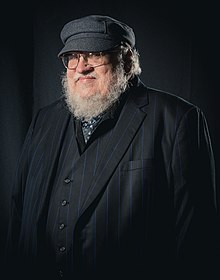
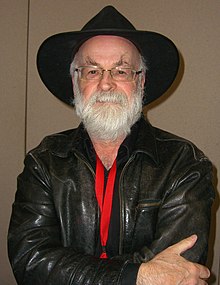
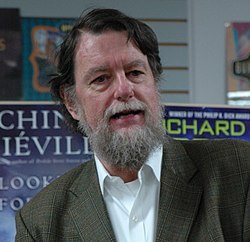

They are/were all excellent writers who did not get where they did in the absence of talent or hard work, and putting confirmation bias aside, there ARE plenty of other unbearded fantasy writers who have sold as many books as these men (Terry Brooks, Brandon Sanderson, JRR Tolkein etc.). But try as hard as I might, I do not, and cannot, look anything like these guys or the others. I should point out here how I’m defining fantasy – something closer to high fantasy, set in a pseudo-medieval setting, and with epic length novels that make up a series. Pratchett played fast and loose with the genre, but that was part of what made his work…well, work. Therefore, how can someone who doesn’t ‘fit’ hope to join the fantasy author club that is so overwhelmingly male, Gandalf-haired, and white?
We are fortunate to live in an age of increasing awareness about differences, our own attitudes to them, and the barriers those differences can create. However, there are some implicit assumptions that have grown up around book genres that still pervade and will continue to do so because it’s a business of selling. If I were to tell you there was a new fantasy novel out from a major publishing house, and that the author was young and female, you would probably guess that this novel was either urban or paranormal fantasy rather than high, and that it would feature a female protagonist upon the cover. You would guess this because of the books we tend to see on sale, and thus we do not have the expectation of young, female writers in the high fantasy genre, but we do have that expectation in urban and paranormal fantasy. Regarding the female characters on front covers, isn’t it interesting how Neil Gaiman, Jasper Fforde, and China Mieville almost never have their male protagonists upon their front covers? A publisher’s decision, for sure, but it makes me wonder how this works in terms of audience selection and preconception.
Then there’s the romance aspect. Writing and reading about romance are seen as innately feminine activities, and the concept of a romance by a female author has become so firmly ingrained that male romance writers will operate under female pseudonyms. When a woman writes fantasy, I would argue that a typical reader, before turning the first page, would expect it to be inherently more romantic than if a man had written it. But in truth, there is plenty of romance to be found in fantasy novels written by men. In fact, just about all of them contain a romantic subplot. But our preconceptions colour how we read everything.
A 2014 study at Goodreads found that readers preferred reading the work of authors from their own gender. I wonder if that is because men are expected to write in a genre that men are expected to read, and vice versa, OR if we genuinely gravitate to authors we feel a connection to. And if the first is true, I wonder if the publishers continue to reinforce such patterns because it is a business model that has always worked. If it is the second, then it might explain why fewer authors submit their work to publishers in genres where they are already under-represented.
Within my own readership, I have found that reviewers, where their names are gendered (I realise I’m making assumptions here on how they identify, but then I’m generalising anyway), tend to identify me as male if they happen to be male, and female if they happen to be male. Not only is it intensely fascinating to me that they believe they have identified my gender, but also that no one can agree on it! Does it reflect what they want to see in an author and is their assumption why they picked up my book, or is it that they project themselves in their own mental image of the author (which is how empathy works)?
A third possibility is that they thought my subject matter or manner of writing indicated I belonged to either the male or female gender. Interestingly, there is an algorithm that will try to predict your binary gender from the pronouns and nouns you use in your writing. Find it here. I pasted in several of my books, and each time it decided I was ‘weak male’. I’m not telling you what I truly am…
It would be interesting to hear what your results are, so do add them to the comments section below.
Back to romance – the idea that women are more preoccupied with romantic stories than men has always struck me as completely nonsensical. If men were not interested in romance in the real world, then none would get married, yet weddings keep on happening. If male readers are interested in romance in the real world, then why not in fiction? It strikes me that the disjuncture between a male readership and a ‘feminine’ genre has more to do with fashion and cultural bias than any inherent differences. Indeed, it is my belief that broadly the same things worry us, interest us, frighten and excite us, since we are human before we are of any particular gender, and that male and female preoccupations are entirely arbitrarily assigned. A writer would not get far with either characterisation or plot if they believed men were only after sex and women were only interested in having children, and that the two minds could never find common ground. Men are from earth; women are from earth.
I mentioned JK Rowling earlier, though scarcely a discussion about authors comes up without her name being mentioned, and I also noted it in the context of children’s books. This is one genre where author genders are more evenly balanced – a quick appraisal of the top 100 on Amazon will demonstrate this (and Rowling occupies about 20 of the spots in the top 100 children’s books!). It is one of those genres where a woman would not feel she was an exception to the gender rule in applying to be published, but whether the proportions of applicants carry through to publications in that genre is unknown to me. What was revealed only recently, however, was that the characters depicted in children’s books tend to contain heroes and villains who are overwhelmingly male and masculine. Female characters, on the other hand, were entirely missing from a fifth of the books studied. Why is it then, that even the female authors were writing about males more often than females?
I suspect it has more to do with what we read, and how we subconsciously reproduce a part of it. Rowling’s novels, to unfairly pull out one example, owe much to Ursula Le Guin’s Earthsea series, which again feature a male hero and villain, and if every other children’s author grew up reading children’s novels featuring male heroes, then perhaps it is not surprising that change has been slow to take place. Perhaps this is a bit of social reproduction, but with gender instead of class, in action.
There is evidence to suggest it helps to have a male author name in certain genres (I do not know which genre Nichols’ book was submitted under – someone please let me know if you do). This article describes how Catherine Nichols received eight and a half times more responses for her manuscript when she pretended her name was George than she did when she was Catherine. Both the male and female agents were guilty of preferring George over Catherine. And yet, there are plenty of male authors out there who have chosen neutral or even female names in order to connect with their audience or fit with their genre.
For these reasons (and the beard problem), I shall remain as a genderless H. O. Charles, or Hadleigh, if you prefer, and for these reasons my profile picture shall remain as a drawing rather than a photo. But what do you think? Is there a certain look or persona an author should adopt in order to publish within a particular genre? Does your gender and the gender of your characters help or hinder you? How male or female was your writing in the gender guesser?!
Some more reading:
https://jezebel.com/homme-de-plume-what-i-learned-sending-my-novel-out-und-1720637627
https://www.theguardian.com/books/2017/may/11/are-things-getting-worse-for-women-in-publishing
2 0 Read more
Lyndi Lamont: January Featured Author
January 21, 2018 by marianne h donley in category Featured Author of the Month tagged as dragons, Fantansy, January Featured Author, Lyndi Lamont

Lyndi Lamont is the racy alter ego of romance author Linda McLaughlin. Writing sexy stories gives her a license to be naughty, at least between the pages of her books! She has written several full-length novels plus numerous short stories and novellas, ranging from historical to futuristic. She believes that love is unending and universal, and enjoys transporting her readers into a different world where her characters learn that, in the journey of life, love is the sweetest reward.
website: http://lindalyndi.com
blog: http://lindalyndi.com/reading-room-blog/
Twitter: https://twitter.com/LyndiLamont
H.O. Charles Featured Author
December 14, 2017 by marianne h donley in category Featured Author of the Month tagged as Fantansy, Featured author, HO Charles

H.O. Charles is an Amazon Top 100 Sci-Fi and Fantasy author of The Fireblade Array – a #2 best-selling series across Kindle, iBooks and B&N Nook in the Sci-Fi and Fantasy categories (#1 would just be showing off, right?)
Okay, it did hit #1 in Epic Fantasy in all those places… BUT DON’T TELL ANYONE because no one likes a bragger.
Though born in Northern England, Charles now resides in a white house in Sussex and sounds like a southerner.
Charles has spent many years at various academic institutions, and cut short writing a PhD in favour of writing about swords and sorcery instead.
Hobbies include being in the sea, being by the sea and eating things that come out of the sea. Walks with a very naughty rough collie puppy also take up much of Charles’ time.
Affiliate Links
A Slice of Orange is an affiliate with some of the booksellers listed on this website, including Barnes & Nobel, Books A Million, iBooks, Kobo, and Smashwords. This means A Slice of Orange may earn a small advertising fee from sales made through the links used on this website. There are reminders of these affiliate links on the pages for individual books.
Search A Slice of Orange
Find a Column
Archives
Featured Books
BEAR WITNESS
Alaska tour boat guide Stacie Calder faces the deep freeze
More info →MISTLETOE & MAYHEM: A REGENCY HOLIDAY ROMANCE ANTHOLOGY
There’s no Christmas like a Regency Christmas spent under mistletoe! New York Times Bestselling author Cheryl Bolen and friends invite you to discover true love in eleven deliciously steamy romances in this all-new holiday collection.
More info →THE RECKLESS ONES: The 90s Collection
All that glitters isn't gold.
More info →LADY ELINOR’S ESCAPE
Lady Elinor Ashworth always longed for adventure, but ...
More info →Newsletter
Contributing Authors
Search A Slice of Orange
Find a Column
Archives
Authors in the Bookstore
- A. E. Decker
- A. J. Scudiere
- A.J. Sidransky
- A.M. Roark
- Abby Collette
- Alanna Lucus
- Albert Marrin
- Alice Duncan
- Alina K. Field
- Alison Green Myers
- Andi Lawrencovna
- Andrew C Raiford
- Angela Pryce
- Aviva Vaughn
- Barbara Ankrum
- Bethlehem Writers Group, LLC
- Carol L. Wright
- Celeste Barclay
- Christina Alexandra
- Christopher D. Ochs
- Claire Davon
- Claire Naden
- Courtnee Turner Hoyle
- Courtney Annicchiarico
- D. Lieber
- Daniel V. Meier Jr.
- Debra Dixon
- Debra H. Goldstein
- Debra Holland
- Dee Ann Palmer
- Denise M. Colby
- Diane Benefiel
- Diane Sismour
- Dianna Sinovic
- DT Krippene
- E.B. Dawson
- Emilie Dallaire
- Emily Brightwell
- Emily PW Murphy
- Fae Rowen
- Faith L. Justice
- Frances Amati
- Geralyn Corcillo
- Glynnis Campbell
- Greg Jolley
- H. O. Charles
- Jaclyn Roché
- Jacqueline Diamond
- Janet Lynn and Will Zeilinger
- Jaya Mehta
- Jeannine Atkins
- Jeff Baird
- Jenna Barwin
- Jenne Kern
- Jennifer D. Bokal
- Jennifer Lyon
- Jerome W. McFadden
- Jill Piscitello
- Jina Bacarr
- Jo A. Hiestand
- Jodi Bogert
- Jolina Petersheim
- Jonathan Maberry
- Joy Allyson
- Judy Duarte
- Justin Murphy
- Justine Davis
- Kat Martin
- Kidd Wadsworth
- Kitty Bucholtz
- Kristy Tate
- Larry Deibert
- Larry Hamilton
- Laura Drake
- Laurie Stevens
- Leslie Knowles
- Li-Ying Lundquist
- Linda Carroll-Bradd
- Linda Lappin
- Linda McLaughlin
- Linda O. Johnston
- Lisa Preston
- Lolo Paige
- Loran Holt
- Lynette M. Burrows
- Lyssa Kay Adams
- Madeline Ash
- Margarita Engle
- Marguerite Quantaine
- Marianne H. Donley
- Mary Castillo
- Maureen Klovers
- Megan Haskell
- Melanie Waterbury
- Melisa Rivero
- Melissa Chambers
- Melodie Winawer
- Meriam Wilhelm
- Mikel J. Wilson
- Mindy Neff
- Monica McCabe
- Nancy Brashear
- Neetu Malik
- Nikki Prince
- Once Upon Anthologies
- Paula Gail Benson
- Penny Reid
- Peter J Barbour
- Priscilla Oliveras
- R. H. Kohno
- Rachel Hailey
- Ralph Hieb
- Ramcy Diek
- Ransom Stephens
- Rebecca Forster
- Renae Wrich
- Roxy Matthews
- Ryder Hunte Clancy
- Sally Paradysz
- Sheila Colón-Bagley
- Simone de Muñoz
- Sophie Barnes
- Susan Kaye Quinn
- Susan Lynn Meyer
- Susan Squires
- T. D. Fox
- Tara C. Allred
- Tara Lain
- Tari Lynn Jewett
- Terri Osburn
- Tracy Reed
- Vera Jane Cook
- Vicki Crum
- Writing Something Romantic
Affiliate Links
A Slice of Orange is an affiliate with some of the booksellers listed on this website, including Barnes & Nobel, Books A Million, iBooks, Kobo, and Smashwords. This means A Slice of Orange may earn a small advertising fee from sales made through the links used on this website. There are reminders of these affiliate links on the pages for individual books.





















